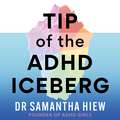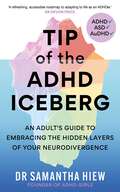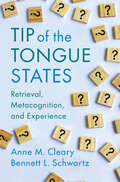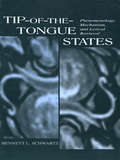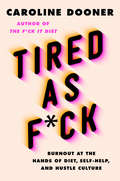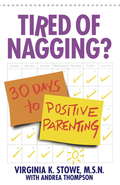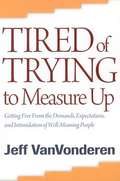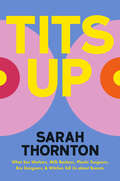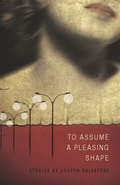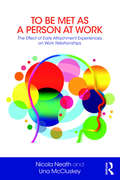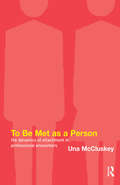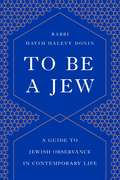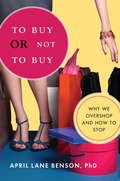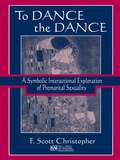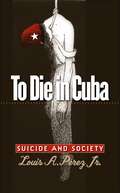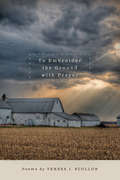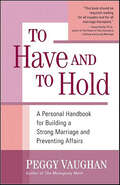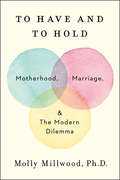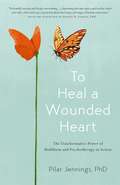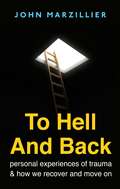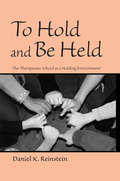- Table View
- List View
Tip of the ADHD Iceberg: An adult's guide to embracing the hidden layers of your neurodivergence
by Dr Samantha HiewA compassionate guide for everyone grappling with their neurodiversityGetting diagnosed with ADHD causes quite the life shake-up, particularly when the diagnosis comes later in life. Suddenly, so many 'truths' you once accepted about yourself start to unravel.Your ADHD doesn't exist in a vacuum: your upbringing, your culture, your relationships and any other conditions you might have, such as autism, depression or anxiety, all affect your experience as a neurodiverse individual. Navigating these intersecting areas can be challenging - but it isn't impossible.Tip of the Iceberg offers a sensitive exploration of the nuances of neurodiversity, preparing you for the whirlwind that can come after a diagnosis and equipping you with the essential tools for self-advocacy.In this book, ADHD Girls Founder Dr Sam Hiew expertly blends her lived experience of ADHD, autism, Tourette's and dyspraxia with her background in medical science to create a deeply empathetic guide to processing your diagnosis in the context of your whole life, from your personal relationships to the workplace environment.Affirming, vindicating and empowering, you will learn to heal from a life of flying under the radar as well as how to prepare yourself for the road ahead.
Tip of the ADHD Iceberg: An adult's guide to embracing the hidden layers of your neurodivergence
by Dr Samantha Hiew"A refreshing, accessible roadmap to adapting to life as an ADHDer, designed with self-acceptance and advocacy in mind." - Devon Price, PhD - Social Psychologist and author of Unmasking AutismA compassionate guide for everyone grappling with their neurodiversityAccepting a label or receiving a formal diagnosis is only the tip of the iceberg when it comes to neurodivergence. Your ADHD doesn't exist in a vacuum: your upbringing, your culture, your relationships and any other conditions you might have, such as autism, depression or anxiety, all affect your experience as a neurodivergent individual. Navigating these intersecting areas can be challenging - but it isn't impossible.Tip of the ADHD Iceberg offers a sensitive exploration of the nuances of neurodiversity, preparing you for the whirlwind that can come after a late diagnosis and equipping you with the essential tools for self-advocacy. In this book, ADHD Girls Founder and award-winning keynote speaker Dr Sam Hiew expertly blends her lived experience of ADHD and autism with her background in medical science to create a deeply empathetic guide to processing your diagnosis in the context of your whole life, from your personal relationships to the workplace environment.Affirming, vindicating and empowering, you will learn to heal from a life of flying under the radar as well as how to prepare yourself for the road ahead.Contents include:- Step 1: Understand It's Not Your Fault- Step 2: Expect to Discover Co-Occurring Conditions- Step 3: Understand Your Nature- Step 4: Trace Your Beginnings- Step 5: Identify Your Emotional Needs- Step 6: Expect Your Relationships to Change and Adapt- Step 7: Navigate Your Neurodiversity at Work- Step 8: Find Your Community- Step 9: Emerge as Your True Self
Tip of the ADHD Iceberg: An adult's guide to embracing the hidden layers of your neurodivergence
by Dr Samantha Hiew"A refreshing, accessible roadmap to adapting to life as an ADHDer, designed with self-acceptance and advocacy in mind." - Devon Price, PhD - Social Psychologist and author of Unmasking AutismA compassionate guide for everyone grappling with their neurodiversityAccepting a label or receiving a formal diagnosis is only the tip of the iceberg when it comes to neurodivergence. Your ADHD doesn't exist in a vacuum: your upbringing, your culture, your relationships and any other conditions you might have, such as autism, depression or anxiety, all affect your experience as a neurodivergent individual. Navigating these intersecting areas can be challenging - but it isn't impossible.Tip of the ADHD Iceberg offers a sensitive exploration of the nuances of neurodiversity, preparing you for the whirlwind that can come after a late diagnosis and equipping you with the essential tools for self-advocacy. In this book, ADHD Girls Founder and award-winning keynote speaker Dr Sam Hiew expertly blends her lived experience of ADHD and autism with her background in medical science to create a deeply empathetic guide to processing your diagnosis in the context of your whole life, from your personal relationships to the workplace environment.Affirming, vindicating and empowering, you will learn to heal from a life of flying under the radar as well as how to prepare yourself for the road ahead.Contents include:- Step 1: Understand It's Not Your Fault- Step 2: Expect to Discover Co-Occurring Conditions- Step 3: Understand Your Nature- Step 4: Trace Your Beginnings- Step 5: Identify Your Emotional Needs- Step 6: Expect Your Relationships to Change and Adapt- Step 7: Navigate Your Neurodiversity at Work- Step 8: Find Your Community- Step 9: Emerge as Your True Self
Tip of the Tongue States: Retrieval, Metacognition, and Experience
by Bennett L. Schwartz Anne M. ClearyThe tip-of-the-tongue state-the feeling that something that we cannot recall is close to coming to mind-is a window onto many facets of the human mind. It lies at an intersection where memory mechanisms, language processes, attention, metacognition, conscious awareness, goal-driven behaviours, curiosity, and even decision-making and risk-taking all seem to cross. In this book, Anne Cleary and Bennett Schwartz explain how tip-of-the-tongue states fit into our overall cognitive systems and what they tell us about the nature of cognition and consciousness. The tip-of-the-tongue state can wield enormous power over our attentional focus and what we choose to do next, regardless of what we had been doing before the onset of the feeling. In short, it wields the ability to redirect our mind. Cleary and Schwartz's text will appeal to students and researchers interested in the workings of the mind and brain.
Tip-of-the-Tongue States and Related Phenomena
by Alan S. Brown Bennett L. SchwartzWhen the memory retrieval process breaks down, people wonder exactly why and how such a thing occurs. In many cases, failed retrieval is accompanied by a "tip-of-the-tongue state," a feeling that an unretrieved item is stored in memory. Tip-of-the-tongue states stand at the crossroads of several research traditions within cognitive science. Some research focuses on the nature of the retrieval failure. Other research tries to determine what tip-of-the-tongue states can tell us about the organization of lexical memory - that is, what aspects of a word we can recall when we are otherwise unable to do so. Still other research focuses on the nature of the experience of a tip-of-the-tongue state. Each of these perspectives is represented in this book, which presents the best theoretical and empirical work on these subjects. Much of the work is cross-disciplinary, but what unifies the topics in this book is that they concern strong phenomenological states of knowing that are not accompanied by recall or recognition of the desired information.
Tip-of-the-tongue States: Phenomenology, Mechanism, and Lexical Retrieval
by Bennett L. SchwartzTip-of-the-Tongue experiences are one of those illusive oddities of human cognition. Like slips of the tongue, déjà vu, and visual illusions, TOTs dazzle us with their subjective strength, yet, at the same time, puzzle us with our frustrating inability to retrieve the desired word. This book discusses what little is known about TOTs and speculates about much of the rest of the riddle. Cognitive psychologists know a lot about processes but generally avoid issues of conscious experience and phenomenology. Because the larger goal of this book is to relate the TOT experience to the study of human phenomenology, it goes beyond the conventional cognitive psychology question, "What causes tip-of-the-tongue experiences?" to ask, "Why do we experience TOTs at all?"
Tired as F*ck: Burnout at the Hands of Diet, Self-Help, and Hustle Culture
by Caroline DoonerBlending memoir and blistering social observations, the author of The F*ck It Diet looks back at her desperate attempts to heal her hunger, anxiety, and imperfections through extreme diets, culty self-help methods, and melodramatic bargains with the universe. Offering a frank and funny critique of the cultural forces that are driving us mad, Caroline Dooner examines how treating ourselves like never ending self-improvement projects is a recipe for burnout. We have become unknowingly complicit in perpetuating our own exhaustion because we are treating ourselves like machines. But even phones need to f*cking recharge.Caroline takes a good hard look at the dark side of self-help, and explains how she eventually used a radical period of rest to push back against cultural expectations and reclaim some peace.Tired As F*ck empowers us to say no to the things that exhaust us. It inspires us to carve out time to slow down, feel okay about doing less, and honor our humanity. This is not a self-help book, it’s a cautionary tale. It’s an honest look at the dogma of wellness and spiritual self-improvement culture and revels in the healing power of rest and letting shit go.
Tired of Nagging?
by Virginia StoweWhat do parents do when the child they adore won't listen? They end up nagging, issuing orders, shouting, and sometimes even spanking. But there is a better way, and Virginia K. Stowe, a parent-child educator for more than twenty-five years, shows how to minimize friction and fighting within the household in order to maximize the pleasures of family life.Tired of Nagging? provides thirty easy-to-use tools for solving everyday conflicts, scenarios of commonplace power struggles and illustrations of the tools in action, plus an "ages and stages" guide to a child's capabilities and needs. The readable, practical advice promotes a loving, yet firm approach, one that emphasizes working with the child to eliminate undesirable behavior without inhibiting self-esteem and independence. With Tired of Nagging?, parents can stop losing their patience and begin enjoying to the fullest all the laughter and fun of their child's precious early years.From the Trade Paperback edition.
Tired of Trying to Measure Up: Getting Free from the Demands, Expectations, and Intimidation of Well-Meaning Christians
by Jeff VanvonderenHelp for those who live by unwritten expectations and rules assumed of a 'perfect Christian,' but who instead feel spiritually drained and perpetually guilty. The answer is to stop striving to be a perfect Christian and start living your life for Jesus Christ.
Tits Up: What Sex Workers, Milk Bankers, Plastic Surgeons, Bra Designers, and Witches Tell Us about Breasts
by Sarah ThorntonAn innovative investigation of the five strange worlds that worship women’s chests. After years of biopsies, best-selling author Sarah Thornton made the difficult decision to have a double mastectomy. But, after her reconstructive surgery, she was perplexed: What had she lost? And gained? An experienced sleuth, she resolved to venture behind the scenes to uncover the social and cultural significance of breasts. Riotous and galvanizing, Tits Up excavates the diverse truths of mammary glands from the strip club to the operating room, from the nation’s oldest human milk bank to the fit rooms of bra designers. Thornton draws insights from plastic surgeons, lactation consultants, body-positive witches, lingerie models, and “free the nipple” activists to explore the status of breasts as emblems of femininity. She examines how women’s chests have become a billion-dollar business, as well as a stage for debates about race, class, gender, and desire. Everywhere she turns, Thornton encounters chauvinist myths about this elemental body part that quietly justify deficits in women’s bodily autonomy and endorse shortfalls in their political status. Blending sociology, reportage, and personal narrative with refreshing optimism and wit, Thornton has one overriding ambition—to liberate breasts from centuries of patriarchal prejudice.
To Assume a Pleasing Shape
by Joseph SalvatoreA body-pierced goth girl cage-dances for a living while putting herself through school. A New York City academic reevaluates her closest relationships while considering breast-reduction surgery. A chatty Gulf War veteran is plagued by a sexual identity crisis. The characters in this debut short story collection search for meaning through the crucible of sex. Joseph Salvatore's top-notch literary writing coaxes readers into murky territories as characters spiral deeper into existential rabbit holes. Joseph Salvatore reviews fiction for The New York Times Book Review. He teaches at The New School where he founded their literary journal LIT. He lives in New York.
To Assume a Pleasing Shape (American Readers Series)
by Joseph SalvatoreA body-pierced goth girl cage-dances for a living while putting herself through school. A New York City academic reevaluates her closest relationships while considering breast-reduction surgery. A chatty Gulf War veteran is plagued by a sexual identity crisis. The characters in this debut short story collection search for meaning through the crucible of sex. Joseph Salvatore's top-notch literary writing coaxes readers into murky territories as characters spiral deeper into existential rabbit holes. Joseph Salvatore reviews fiction for The New York Times Book Review. He teaches at The New School where he founded their literary journal LIT. He lives in New York.
To Be Met as a Person at Work: The Effect of Early Attachment Experiences on Work Relationships
by Nicola Neath Una McCluskeyThis book provides an account of how the "Theory of Attachment-Based Exploratory Interest Sharing" (TABEIS) and the practise of Goal Corrected Empathic Attunement (GCEA) was used in a university setting to support staff. It works in three ways; firstly, it raises attachment theory, one of the pillars of self-understanding, into a central place in terms of reflecting on and learning from the dynamics of business and organisations. Neath explores how well this attachment theory sits with other theories of self and relationships such as transactional analysis and the person-centred approach.Secondly, it is an account of how Neath took an application of McCluskey's theory "The McCluskey Model for Exploring the Dynamics of Attachment in Adult Life" to the University of Leeds, with learning points made along the way, exploring the practise of a therapeutic-style of group facilitation, and reflection on good practice for professional adult learning and teaching techniques. Thirdly, it acts as a handbook for anyone wishing to replicate Neath's work and includes feedback from participants both during and after the training process. It will appeal to those new to training, counselling, organisational developers and those wishing to enjoy and see the potential of the work of McCluskey.
To Be Met as a Person: The Dynamics of Attachment in Professional Encounters
by Una McCluskeyThis book presents a theory of interaction in adult life when the dynamics of careseeking and caregiving are elicited. It sets out a framework for thinking about the way adults interact with one another, particularly when they are anxious, under stress or frightened.
To Be a Jew: A Guide to Jewish Observance in Contemporary Life
by Hayim H. DoninThe classic guide to the ageless heritage of JudaismEmbraced over many decades by hundreds of thousands of readers, To Be a Jew offers a clear and comprehensive introduction to traditional Jewish laws and customs as they apply to daily life in the contemporary world. In simple and powerful language, Rabbi Hayim Halevy Donin presents the fundamentals of Judaism, including the laws and observances for the Sabbath, the dietary laws, family life, prayer at home and in the synagogue, the major and minor holidays, and the guiding principles and observances of life, such as birth, naming, circumcision, adoption and conversion, Bar-mitzvah, marriage, divorce, death, and mourning. Ideal for reference, reflection, and inspiration, To Be a Jew will by greatly valued by anyone who feels that knowing, understanding, and observing the laws and traditions of Judaism in daily life is the essence of what it means to be a Jew.
To Buy or Not to Buy: Why We Overshop and How to Stop
by April BensonAre you a shopaholic?Do you use shopping as a quick fix for the blues?Do you often buy things that you don't need or can't afford?Do your buying binges leave you feeling anxious or guilty?Is your shopping behavior hurting your relationships?Have you tried to stop but been unable to?If so, you are not alone. Nearly 18 million Americans are problem shoppers, unable to break the buying habits that lead them into debt, damaged relationships, and depression. If this describes you, or someone you care about, the help you need is here.Drawing on recent research and on decades of working with overshoppers, Dr. April Benson brings together key insights with practical strategies in a powerful program to help you stop overshopping. As you progress through this book, you'll take back control of your shopping and spending and create a richer, more meaningful and satisfying life.
To Dance the Dance: A Symbolic Interactional Exploration of Premarital Sexuality (LEA's Series on Personal Relationships)
by F. Scott ChristopherThis pioneering monograph integrates the major research findings of the past four decades and offers a new model for the study of human sexuality. The author examines the empirical literature on sexuality for the developmental stages of childhood, adolescence, and young adulthood and for experiences of sexual aggression. He then uses symbolic interactionism to develop a theoretical model which integrates the research across the developmental periods and for instances of sexual aggression, providing one of the most comprehensive views of sexuality development that has yet been offered. The work investigates the role of family, peers, romantic partners, and personality in the development of sexual expression and offers a unique vision of how symbolic interactionism can inform one's understanding of sexual beliefs and behaviors through the developmental stages. By acknowledging developmental differences and changes in individuals and their interpersonal relationship context, a more integrated understanding emerges of how sexuality develops. This volume is intended for students and scholars interested in the influences on the development of sexual expression of youth and young adults. It will be of great interest to readers in psychology, family studies, communication, sociology, adolescent studies, and specialized areas of sexuality research. It is appropriate for undergraduate seminars and graduate-level courses on human sexuality, close relationships, family theory, sociology, communication, social psychology, developmental psychology, and related areas.
To Die in Cuba
by Louis A. PérezFor much of the nineteenth century and all of the twentieth, the per capita rate of suicide in Cuba was the highest in Latin America and among the highest in the world--a condition made all the more extraordinary in light of Cuba's historic ties to the Catholic church. In this richly illustrated social and cultural history of suicide in Cuba, Louis A. Perez Jr. explores the way suicide passed from the unthinkable to the unremarkable in Cuban society.In a study that spans the experiences of enslaved Africans and indentured Chinese in the colony, nationalists of the twentieth-century republic, and emigrants from Cuba to Florida following the 1959 revolution, Perez finds that the act of suicide was loaded with meanings that changed over time. Analyzing the social context of suicide, he argues that in addition to confirming despair, suicide sometimes served as a way to consecrate patriotism, affirm personal agency, or protest injustice. The act was often seen by suicidal persons and their contemporaries as an entirely reasonable response to circumstances of affliction, whether economic, political, or social.Bringing an important historical perspective to the study of suicide, Perez offers a valuable new understanding of the strategies with which vast numbers of people made their way through life--if only to choose to end it. To Die in Cuba ultimately tells as much about Cubans' lives, culture, and society as it does about their self-inflicted deaths.For much of the nineteenth century and all of the twentieth, the per capita rate of suicide in Cuba was the highest in Latin America and among the highest in the world--a condition made all the more extraordinary in light of Cuba's historic ties to the Catholic church. In this richly illustrated social and cultural history of suicide in Cuba, Louis A. Perez Jr. explores the way suicide passed from the unthinkable to the unremarkable in Cuban society. To Die in Cuba ultimately tells as much about Cubans' lives, culture, and society as it does about their self-inflicted deaths.-->
To Embroider the Ground with Prayer
by Teresa J. ScollonA beautiful meditation on grief, memory, and the seasons of life.
To Have and To Hold: A Personal Handbook for Building a Strong Marriage and Preventing Affairs
by Peggy VaughanFrom the author of The Monogamy Myth, an essential guide written specifically for married couples to strengthen their relationship and prevent affairs.Based on Peggy Vaughan's 30 years of work with married couples and the issue of affairs, this new handbook challenges the assumption that monogamy can be taken for granted, and provides the tools for building a strong marriage and preventing affairs.Explaining the need to focus on preventing affairs before there is any threat to a marriage, she draws on her survey of 755 people regarding their beliefs to present "What Won't Work" and "What Will Work" to prevent affairs.Throughout To Have and to Hold, Vaughan details specific strategies and techniques, emphasizing that:Relying on attitudes and beliefs is not sufficient to maintain a monogamous relationship over a lifetime.Focusing on actions and behaviors is far more significant to strengthen a relationship.Responsible honesty is the single most important factor in preventing affairs.Everybody (society as a whole) plays a role in supporting couples' efforts to maintain monogamy.Parents have a special responsibility to break the pattern for future generations.Four appendices present Vaughan's survey questionnaire along with detailed breakdowns of responses.
To Have and to Hold: Motherhood, Marriage, and the Modern Dilemma
by Molly Millwood PhDA clinical psychologist’s exploration of the modern dilemmas women face in the wake of new motherhood When Molly Millwood became a mother, she was fully prepared for what she would gain: an adorable baby boy; hard-won mothering skills; and a messy, chaotic, beautiful life. But what she did not expect was what she would lose: aspects of her identity, a baseline level of happiness, a general sense of wellbeing. And though she had the benefit of a supportive husband during this transition, she also at times resented the fact that the disruption to his life seemed to pale in comparison to hers.As a clinical psychologist, Molly knew her experience was a normal response to a life-changing event. But without the advantage of such a perspective, many of the patients she treated in her private practice grappled with self-doubt, guilt, and fear, and suffered the dual pain of not only the struggle to adjust but also the overwhelming shame for struggling at all.In To Have and to Hold, Molly explores the complex terrain of new motherhood, illuminating the ways it affects women psychologically, emotionally, physically, and professionally—as well as how it impacts their partnership. Along with the arrival of a bundle of joy come thorny issues such as self-worth, control, autonomy, and dependency. And for most new mothers, these issues are experienced within the context of an intimate relationship, adding another layer of tension, conflict, and confusion to an already challenging time.As Molly examines the inextricable link between women’s well-being as new mothers and the well-being of their relationships, she offers guidance to help readers reclaim their identities, overcome their guilt and shame, and repair their relationships. A blend of personal narrative, scientific research, and stories from Molly’s clinical practice, To Have and to Hold provides a much-needed lifeline to new mothers everywhere.
To Heal a Wounded Heart: The Transformative Power of Buddhism and Psychotherapy in Action
by Pilar JenningsEarly on in her clinical practice, psychoanalyst Pilar Jennings was presented with a particularly difficult case: a six-year-old girl who, traumatized by loss, had stopped speaking. Challenged by the limitations of her training to respond effectively to the isolating effect of childhood trauma, Jennings takes the unconventional path of inviting her friend Lama Pema—a kindly Tibetan Buddhist monk who experienced his own life-shaping trauma at a very young age—into their sessions. In the warm therapeutic space they create, the young girl slowly begins to heal. The result is a fascinating case study of the intersection of Western psychology and Buddhist teachings. Pilar’s story is for therapists, parents, Buddhists, or any of us who hold out the hope that even the deepest childhood wounds can be the portal to our capacity to love and be loved.
To Hell and Back: Personal Experiences Of Trauma And How We Recover And Move On
by John MarzillierDespite how rare one-off traumatic events may seem, the statistics show that the majority of us are likely to experience such trauma at some point in our lives. In this innovative and engaging book, Marzillier combines first-hand accounts from trauma sufferers with over forty years of clinical practice to provide an honest, human description of how trauma affects us at the time and also after the event. Whether discussing accounts of terrorist bombings, natural disasters, road accidents or physical attacks, he looks at what these experiences do to us and offers practical and consoling advice - for both sufferers and their loved ones - on coping with the experience and developing resilience for the future.
To Hell and Back: Personal Experiences of Trauma and How We Recover and Move on
by John MarzillierDespite how rare one-off traumatic events may seem, the statistics show that the majority of us are likely to experience such trauma at some point in our lives. In this innovative and engaging book, Marzillier combines first-hand accounts from trauma sufferers with over forty years of clinical practice to provide an honest, human description of how trauma affects us at the time and also after the event. Whether discussing accounts of terrorist bombings, natural disasters, road accidents or physical attacks, he looks at what these experiences do to us and offers practical and consoling advice - for both sufferers and their loved ones - on coping with the experience and developing resilience for the future.
To Hold and Be Held: The Therapeutic School as a Holding Environment
by Daniel K. ReinsteinDrawing on the teachings of D.W. Winnicott and John Bowlby, who helped revolutionize thinking about relational psychology, To Hold and Be Held integrates the concepts of the ‘holding environment’ and attachment theory and describes how they are applied in a clinical setting. It also uses metaphor to both derive meaning from the language of the therapeutic process and to apply that meaning within a systems framework to effect significant therapeutic change. As the number of children with complex problems increases and the facilities to treat and manage them decrease, schools are left with few resources to cope. Professionals such as teachers, psychologists, social workers, and counselors need a new framework in which to think about and advocate for services for these children. To Hold and Be Held describes the creation of a system of working that not only holds the child and his family, but also holds the larger system as well – a system in which therapeutic services are integrated at all levels and implemented in public schools in a way that supports all those involved. This is not only a unique and successful way of working with children and their families, but a timely one as well.
